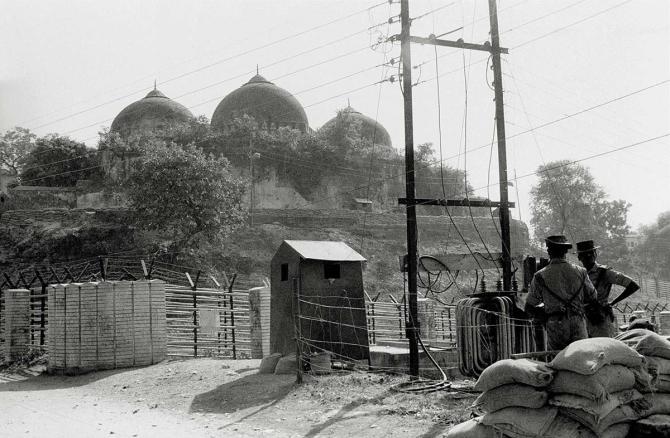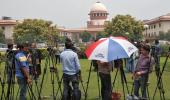Justice (retired) Sudhir Agarwal, who was part of an Allahabad high court bench which delivered a key judgment in the Ram Janmabhoomi-Babri Masjid title suit in 2010, said he was under "pressure" not to give the ruling and added that had they not done so, there would not have been any verdict in the matter for the next 200 years.

Justice Agarwal retired from the high court on April 23, 2020.
Talking to reporters after an event in Meerut in Uttar Pradesh, he said, "After delivering the judgement..., I felt blessed.... There was pressure on me to postpone the judgment in the case. There was pressure from within home and also from outside."
"Family members and relatives used to suggest to somehow pass time and not deliver the judgment," he added.
"Had the judgment not been delivered on September 30, 2010 in the Ram Janmabhoomi-Babri Masjid case, there would not have been any judgement in this matter for the next 200 years," he said.
On September 30, 2010, the Allahabad high court pronounced its judgement with majority decision of 2:1 and held that the 2.77 acres land located in Ayodhya would be divided equally among three parties -- Sunni Waqf Board, Nirmohi Akhara and 'Ram Lalla' or infant Ram represented by the Hindu Mahasabha.
The bench comprised Justices SU Khan, Sudhir Agarwal and DV Sharma.
In a landmark judgment in November 2019, the Supreme Court said a temple would be built at the disputed land in Ayodhya and ordered the government to give Muslim parties an alternative five-acre plot.











 © 2025
© 2025